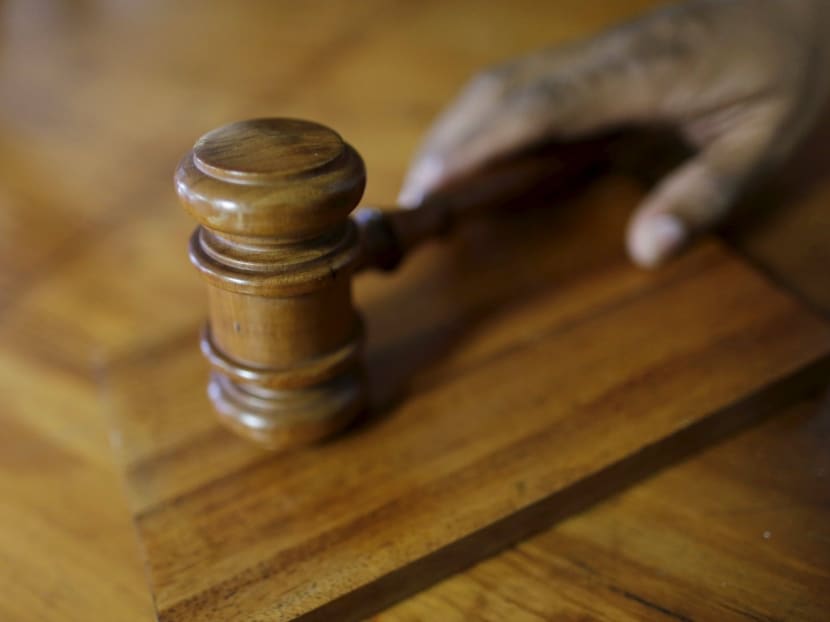Legal fraternity hails proposed changes to criminal laws
SINGAPORE — Legal practitioners and activists yesterday welcomed the sweeping amendments proposed to the Criminal Procedure Code and Evidence Act, with many lauding, in particular, the introduction of video-recorded interviews, expansion of the community sentencing regime and enhanced protection of vulnerable complainants.

Legal practitioners and activists yesterday welcomed the sweeping amendments proposed to the Criminal Procedure Code and Evidence Act, with many lauding, in particular, the introduction of video-recorded interviews, expansion of the community sentencing regime and enhanced protection of vulnerable complainants. Photo: Reuters
SINGAPORE — Legal practitioners and activists yesterday welcomed the sweeping amendments proposed to the Criminal Procedure Code and Evidence Act, with many lauding, in particular, the introduction of video-recorded interviews, expansion of the community sentencing regime and enhanced protection of vulnerable complainants.
Video recording is a positive development that protects both accused persons and investigation officers while helping judges to evaluate evidence better, said law professor Kumaralingam Amirthalingam from the National University of Singapore.
Agreeing, criminal lawyer Josephus Tan said this will “greatly reduce the time and cost involved in each case right from the get-go”, and deter alleged offenders from making unsubstantiated claims that they had been threatened or induced into giving statements.
However, relevant agencies must ensure that risks are managed so that “leading evidence” is not admitted and that defence lawyers are given timely access to the recordings and the right to cross-examine witnesses, said Prof Amirthalingam.
Lawyer Sunil Sudheesan said the move, while “worth the wait”, will require certain safeguards such as “proper logging of time taken to walk from the lockup to the interview rooms” to prevent allegations that threats, inducements or promises were made before or after the statements were recorded.
Mr Sudheesan, who is also president of the Association of Criminal Lawyers of Singapore, suggested that the video-recorded interviews be made compulsory for capital offences, such as murder, as well as corruption offences where previous high-profile cases such as those involving former Central Narcotics Bureau chief Ng Boon Gay and former law academic Tey Tsun Hang had seen challenges to the veracity of statements taken by the police.
Mr Sudheesan and Mr Tan also hailed the expansion of the community-based sentencing regime, noting that the current coverage is “very narrow”.
“Many (have committed) crimes while labouring under mental impairment for many years and the expansion will widen the catchment,” said Mr Tan.
Mandatory treatment orders, in particular, can be widened to include more sex offenders, said Mr Sudheesan, noting that many had been driven by fetishistic disorders but “jail is a clumsy tool for such offenders”.
“We have seen so many benefiting from this second chance, and (this proposal) is a reflection of a more sympathetic community. We are starting to appreciate that jail is not the answer when there are other measures at the courts’ disposal to cure root causes,” he said.
Ms Corinna Lim, executive director of the Association of Women for Action and Research, welcomed the proposals to shield vulnerable victims from their alleged tormentors. The fear of seeing their assailants often deter victims of sexual offences from making reports, she noted.
“Sexual assault is such a deep violation of a person’s humanity. The idea of coming face-to-face with the accused in court can be extremely daunting. The use of screens will be helpful to address this,” said Ms Lim.
Calling the moves to protect these victims from unfair lines of questioning a “significant step forward”, she added: “Inappropriate questions and remarks about the complainant’s appearance, character and sexual history have been used as a way to diminish the credibility of the complainants and to shock (them). They often feel embarrassed, humiliated and offended when faced with (these).”
She hoped that the proposed changes will “go some way to address under-reporting and victims’ premature withdrawal from the criminal justice process”.
Lawyer Anand Nalachandran, however, said that the protection of the complainant must be balanced with the right of the accused to challenge a witness’ credibility.
On the requirement for psychiatric experts to be on an approved panel, Prof Amirthalingam felt that it may cause some controversy. “It may give rise to concerns about who is appointed to the panel and the degree of independence exercised by the expert if at the back of their minds they are thinking about reappointment to the panel,” he said.
Overall, Mr Sudheesan said the legal fraternity “appreciates” the Government’s work in drawing up the proposals.
“The Criminal Bar will keep on pushing for more, of course ... but let us pause and recognise the efforts of those who have spent significant time working on these changes.” KELLY NG






